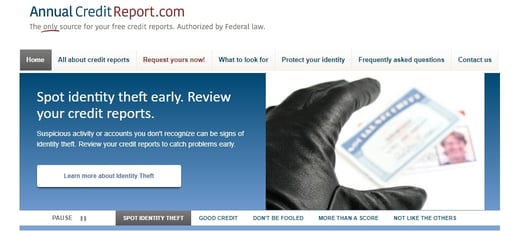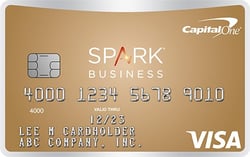As the name implies, business credit cards are designed for your business needs rather than your personal expenses. Options are available to virtually all business owners, no matter the type of business you engage in or the size and structure of your venture. Business credit cards are even available to people who don’t have positive and established credit.
Business cards allow you to keep your personal and business finances separate and build a business credit history that will be instrumental in helping you pursue other financing options in the future. These cards almost always come with rewards programs tailored to meet the needs of a business instead of an individual.
Here’s what you need to do to apply for a business credit card.
1. Get Your Personal Credit in Order
The issuer will check your personal credit history to determine if you qualify for a business card. The more attractive your credit reports and the higher your scores, the greater the chance you’ll be approved.
If you haven’t reviewed your consumer credit reports from Experian, TransUnion, and Equifax, do so now by requesting them from AnnualCreditReport.com.

Also check your FICO® Score and VantageScore, as either can be used by issuers. They range from 300 to 850 and higher numbers are preferable as they are predictive of less credit risk.
It will behoove you to improve your credit score if those numbers are on the low end. Pay your bills on time and lessen your debt load to see quick results.
2. Compare the Best Business Credit Card Offers
The process for identifying which credit card is right for your business is the same as when you’re seeking a personal card. The cost needs to be reasonable and the benefits should be sensible. Look for:
- A low interest rate. The rate you are offered is important because there may come a time when you want to extend a balance for several months. Look for a card with the lowest ongoing APR. Or, look for business cards that offer a 0% promotional APR, which can be a fantastic way to launch or pay for operating costs, since they give you a lengthy period to charge without any finance fees added. These offers typically range from six to 18 months, after which the regular interest rate will kick in. Compare the regular APRs offered if you think you’ll be carrying over debt after the promotional period ends.
- The right rewards. If you travel for work, the card you get should offer travel rewards and perks. That means the ability to earn points or miles for free or upgraded tickets and hotel rooms, access to airport lounges, complimentary checked bags, and special deals on rental cars. Cash back cards will be preferable if you want to earn money back on your purchases. You can use that cash for everything from a statement credit to buying gift cards for your clients and staff members, or just to use the money to cover other business expenses.
- A substantial signup bonus. Most business credit cards available to people with good to excellent credit scores offer generous one-time bonuses. You may be able to score 60,000 or more rewards points or hundreds of dollars in cash after spending a few thousand dollars in the first three months of opening the account. If you pay the balance in full, you’ll be ahead of the game.
- An annual fee that makes sense. Not all business cards come with annual fees, but many do, and they can be quite steep. However, if the value of the rewards you rack up and use is greater than the cost of the annual fee, you will still turn a profit, so weigh the value of the perks against the annual fee.
Below are our top-rated business cards, each with its own set of features important to business owners. Read each of the bullets carefully to see which card appeals most to you.
- Earn $750 bonus cash back after you spend $6,000 on purchases in the first 3 months from account opening
- Earn unlimited 1.5% cash back on every purchase made for your business
- No Annual Fee
- Redeem rewards for cash back, gift cards, travel and more through Chase Ultimate Rewards®.
- Earn rewards faster with employee cards at no additional cost. Set individual spending limits for greater control.
- Round-the-clock monitoring for unusual credit card purchases
|
Intro (Purchases)
|
Intro (Transfers)
|
Regular APR
|
Annual Fee
|
Credit Needed
|
|---|---|---|---|---|
0% Intro APR on Purchases 12 months
|
N/A 12 months
|
18.49% – 24.49% Variable
|
$0
|
Good/Excellent
|
- Earn a one-time bonus of 50,000 miles – equal to $500 in travel – once you spend $4,500 on purchases within the first 3 months from account opening
- Earn unlimited 2X miles per dollar on every purchase, everywhere, no limits or category restrictions, and miles won’t expire for the life of the account
- Unlimited 5X miles on hotels and rental cars booked through Capital One Travel
- Transfer your miles to 15+ travel loyalty programs
- Redeem your miles instantly for any travel-related purchases, from flights and hotels to ride-sharing services
- Skip the lines with up to a $100 statement credit on TSA PreCheck® or Global Entry
|
Intro (Purchases)
|
Intro (Transfers)
|
Regular APR
|
Annual Fee
|
Credit Needed
|
|---|---|---|---|---|
N/A
|
N/A
|
26.24% (Variable)
|
$0 intro for first year; $95 after that
|
Excellent, Good
|
- 0% Intro APR for the first 12 months; 21.24% – 29.24% variable APR after that
- Earn unlimited 1.5% cash back for your business on every purchase, everywhere — with no limits or category restrictions
- No annual fee
- Earn unlimited 5% cash back on hotels and rental cars booked through Capital One Travel
- Rewards won’t expire for the life of the account
- Redeem your cash back rewards for any amount
|
Intro (Purchases)
|
Intro (Transfers)
|
Regular APR
|
Annual Fee
|
Credit Needed
|
|---|---|---|---|---|
0% for 12 months
|
N/A
|
21.24% – 29.24% (Variable)
|
$0
|
Good
|
Prepare to be personally responsible for any debt accrued on a business credit card. Many credit card issuers require a personal guarantee, which means you will be held personally liable for the business account and any debt you accrue on the card, even if it’s in the business’s name.
Don’t be caught off guard. If you become the account’s cosigner, the credit card issuer will expect you to pay the bill and can sue you for damages if you don’t.
3. Gather the Information Needed for the Application
Once you’ve identified the appropriate card, you’re ready to complete the application. The information will differ from what is asked on a personal credit card application, so be prepared with the appropriate information:
- The businesses’ name: This is the name that will be printed on the card. If it’s just you, use your own name. Otherwise, enter the name you registered with the state.
- Your title: This is your role, such as CEO, president, or director.
- Business contact information: List the address and phone number for your business, regardless of whether it’s separate from your personal information.
- The business’s structure: Your business may be a partnership, a limited liability company (LLC), an S corporation, or a C corporation. You’ll be listing that designation on the form, so know what it is beforehand.
- Other owners: If someone else owns 25% or more of the business, you will need to list their identification information. If you’re applying jointly, the issuer won’t check that person’s credit.
- A tax identification number: If you’ve incorporated, this will be your IRS Employer Identification Number (EIN). But, if you’re a sole proprietor, you will write in your Social Security number.
- Your industry type: The application will likely provide a drop-down menu of industries from which to choose. Select the one that most accurately represents your business.
- Years in business: If your business is a startup, enter “0.”
- Number of employees. You’ll start with “1” if it’s just you and add more if other people are on the payroll.
- Annual revenue. It’s not essential the business be profitable. If it’s set up to make money by selling something or performing a service where others pay you, you can apply for a business credit card. Put in “0” if your business hasn’t made any money yet, otherwise, list the figure from the previous year.
- Monthly expenses. You may need to provide your monthly operating costs. It doesn’t have to be precise but should be a decent estimate of your business expenses.
Having the above items in order before applying will help ensure your application doesn’t time out due to inactivity as you struggle to find the information you need.
4. Don’t Let No or Poor Credit Stop You From Applying
Of course, just starting out can be tough, especially when you have unestablished or poor credit. Not to worry, there is a credit card for nearly every business owner.

One such example is the Capital One® Spark® Classic for Business, which is ideal for business owners with limited to average credit ratings. It offers 1% unlimited cash back on purchases and charges no annual fee. (Information for this card not reviewed by or provided by Capital One.)
Secured business credit cards are also a wise way to begin. The Wells Fargo Business Secured Card was developed for the business owner with no or very little business credit history. The annual fee is just $25, and the minimum security deposit is $500.
This card comes with options: You can earn 1.5% cash back for every $1 you spend with the card or you may choose to earn points — 1 point per $1 spent, plus 1,000 bonus points when you charge at least $1,000 in a monthly billing period.
(The information related to Wells Fargo Business Secured Card has been collected by CardRates.com and has not been reviewed or provided by the issuer or provider of this product or service.)
5. Build Business Credit Separate from Personal Credit
It is very important to keep your personal credit activity removed from your business credit activity for tax and accounting purposes. In addition to a business credit card, consider a small business loan in your company’s name.
Some good options to consider:
- SBA loan. The Small Business Association may extend your company a small loan that is reported on your credit report.
- Microloan. Nonprofit lenders offer very small — and often no-interest — loans to qualified startups. Just make sure the one you’re interested in reports your payment activity to the credit reporting agencies, as some do not.
- Credit union loan. Credit unions are nonprofit financial institutions. When you join and become a member, you gain access to loans and lines of credit that can help your business.
Dun & Bradstreet, Equifax, and Experian produce business credit reports. There won’t be anything on them until you open a business loan or business credit card.
However, be aware that if you haven’t incorporated and the accounts are in your name and Social Security number, you won’t build a business credit history. If this is going to be your primary business, it usually makes sense to incorporate and obtain an EIN.
To build your business credit, you will need to open a business bank account and designated phone line. Then, get your Dun & Bradstreet D‑U‑N‑S Number, which will be your business’s nine-digit identifier.
Make the Most of What a Business Card Offers
Don’t worry if you start small and work your way up to more rewards-rich business credit cards. The idea is to use the card you get in a productive way.
Pay your balances in full when you can, always pay on time, and make the most of what your card offers. When you do, that piece of plastic will help you manage your business expenses not just inexpensively, but safely and advantageously.
Advertiser Disclosure
CardRates.com is a free online resource that offers valuable content and comparison services to users. To keep this resource 100% free, we receive compensation for referrals for many of the offers listed on the site. Along with key review factors, this compensation may impact how and where products appear across CardRates.com (including, for example, the order in which they appear). CardRates.com does not include the entire universe of available offers. Editorial opinions expressed on the site are strictly our own and are not provided, endorsed, or approved by advertisers.


![How to Apply for a Credit Card Online: 4 Easy Steps ([updated_month_year]) How to Apply for a Credit Card Online: 4 Easy Steps ([updated_month_year])](https://www.cardrates.com/images/uploads/2016/07/How-to-Apply-for-a-Credit-Card-Online--1.jpg?width=158&height=120&fit=crop)
![Apply For a Prepaid Card: 5 Best Card Options ([updated_month_year]) Apply For a Prepaid Card: 5 Best Card Options ([updated_month_year])](https://www.cardrates.com/images/uploads/2022/09/Apply-For-a-Prepaid-Card.jpg?width=158&height=120&fit=crop)
![How to Apply For a Credit Card With Bad Credit ([updated_month_year]) How to Apply For a Credit Card With Bad Credit ([updated_month_year])](https://www.cardrates.com/images/uploads/2022/01/How-to-Apply-For-a-Credit-Card-With-Bad-Credit.jpg?width=158&height=120&fit=crop)
![7 Credit Card Requirements & Minimums to Apply ([updated_month_year]) 7 Credit Card Requirements & Minimums to Apply ([updated_month_year])](https://www.cardrates.com/images/uploads/2017/08/req.png?width=158&height=120&fit=crop)
![How to Calculate Credit Card Interest: 3 Steps to Find Your Rate ([updated_month_year]) How to Calculate Credit Card Interest: 3 Steps to Find Your Rate ([updated_month_year])](https://www.cardrates.com/images/uploads/2017/02/how-to-calculate-credit-card-interest.jpg?width=158&height=120&fit=crop)
![How to Get a Credit Card in 6 Easy Steps ([updated_month_year]) How to Get a Credit Card in 6 Easy Steps ([updated_month_year])](https://www.cardrates.com/images/uploads/2017/09/GETCARD.png?width=158&height=120&fit=crop)
![How Do I Get a Credit Card? 3 Easy Steps ([updated_month_year]) How Do I Get a Credit Card? 3 Easy Steps ([updated_month_year])](https://www.cardrates.com/images/uploads/2018/01/getcard2.png?width=158&height=120&fit=crop)
![3 Steps for Maximizing Credit Card Perks & Rewards ([updated_month_year]) 3 Steps for Maximizing Credit Card Perks & Rewards ([updated_month_year])](https://www.cardrates.com/images/uploads/2018/12/maximizing-credit-card-perks-and-rewards-1.png?width=158&height=120&fit=crop)